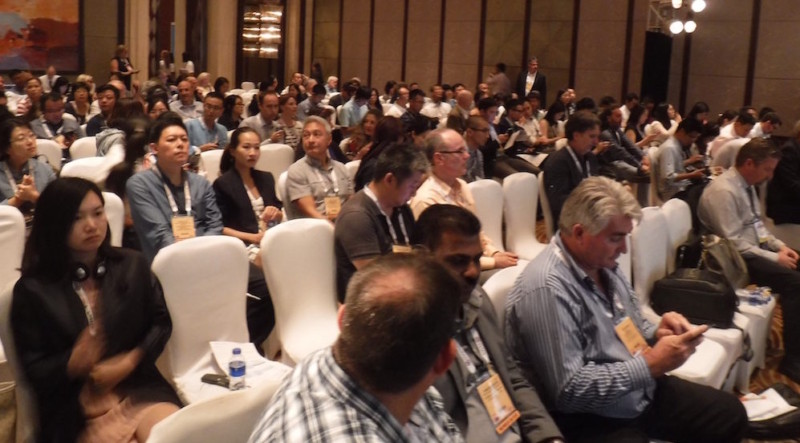
[dropcap color=”#888″ type=”square”]I[/dropcap]AAPA’s Vice President of Asia Pacific Operations, June Ko, moderated a panel of industry leaders focused on what was new in the Asian market during the 2016 Asian Attractions Expo. Matthias Li (Ocean Park Hong Kong), Jim Pattison Jr.(Ripley Entertainment) and Dennis Spiegel (International Theme Park Services) spoke about each of their company’s involvement in the region and answered questions about where the market is headed.
[quote]As American companies enter China [as Ripley has done], we have to adjust to the culture and better understand the guest.”[/quote]
InPark Editor Martin Palicki collected the following highlights and excerpts from the educational session.
- Based on International Theme Park Services’ research, Japan currently has the highest in-park spending in the region. Asian visitors tend to highly value good merchandise and currently Japanese parks have great merchandise available for sale, resulting in higher spending.
- The period of growth and development for theme parks that happened in the US during the 1970s is what is happening in Asia now. In particular, we are in an “immersion period” where very technology-heavy attractions are at the forefront of the park experience.
- We are always looking for the next wave of the middle class. That group has the time and money available for leisure attractions. The middle class is growing just about everywhere in the world except the US (declining at about -5%) and Europe (relatively flat at +2.4%).
- The number one performing property in the Ripley chain is in Jeju Island, South Korea.
- Ripley’s uses traveling shows to test out new markets. We expect to launch one in Asia soon, targeted for science centers.
- In recent years, Hong Kong Ocean Kingdom had to overcome several challenges: the depreciation of currencies of other destinations, regional competition, and changes in tourism policies.
- The outlook is positive. A rising middle class and rapidly increasing income levels will drive the number of outbound tourists and positively impact attendance and growth.
How does theme park growth compare with the US?
Spiegel: Asia is ahead of where the US was in the 70s. There is a much larger population and land mass, so continued outpacing of the US is expected. The only difference is in the area of mobility. The US had significant highway infrastructure already in place. [Editor’s note: China is rapidly expanding its highway and high speed rail networks]
What is the effect of non-Asian brands entering the marketplace?
Pattison: There is a lot of interest in American entertainment and interest in what is happening in the US.
Li: Some local parks are very creative. Foreign IP is one route, but local folklore and local stories matter too.
Spiegel: IP is more important today than before. It requires capital reinvestment to drive repeat visitation. It’s an expensive game and you can’t stop, but if it is done right, you will earn a solid ROI.
What trends are you noticing?
Spiegel: Technology in attractions is more immersive and participatory. Also, it is making the experience easier for the guest.
Pattison: The fundamental basics of attractions haven’t changed, but technology has helped. The attractions business is about getting the whole family to communicate together.
What are Western companies learning about doing business in China?
Pattison: As American companies enter China [as Ripley has done], we have to adjust to the culture and better understand the guest. To help move that process along, we always find a partner in the country to work with right away. We also focus strategically on locations. Before launching an attraction in a new location, I always ask myself three questions: 1) Will they understand our product? 2) Will they have time to go? 3) What does a Big Mac cost? With those answers I have a good idea if the location is a match for our attractions.

